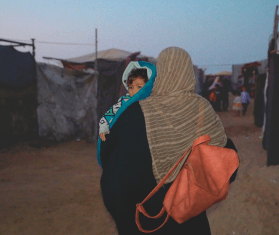NEW YORK, FEBRUARY 8, 2023—In response to the Turkey-Syria earthquakes disaster, the international medical humanitarian organization Doctors Without Borders/Médecins Sans Frontières (MSF) is providing medical care and relief aid for thousands of injured people. Our teams have supported medical care for 3,465 injured people in health facilities in Syria’s Aleppo and Idlib governorates, and provided emergency medical items and kits to over 23 hospitals and clinics in northern Idlib. MSF emergency teams are assessing the needs in the most affected areas of southern Turkey, officially renamed Türkiye, and stands ready to provide assistance.
The search for survivors is ongoing following the earthquakes that struck southern Türkiye and northern Syria on February 6. More than 11,000 people have been killed and more than 60,000 injured across both countries, according to recent estimates. The death toll is expected to rise in both Türkiye and Syria, as many people are still trapped under rubble. MSF-supported facilities in northwestern Syria have recorded 551 deaths.
The few hospitals that remain functional in northwestern Syria are treating the wounded. However, many hospitals have been damaged and are unable to continue treating patients. For example, two MSF-supported maternity centers were evacuated due to the risk of the buildings collapsing.
“Our medical staff and partners in northwestern Syria have been working hard to treat patients since the first hours of the disaster,” said Avril Benoît, executive director of MSF-USA. “We will continue to assess people’s needs and adapt our emergency response accordingly.”
February 06 07:43 AM
Earthquakes in Turkey and Syria: What is MSF doing?
MSF teams in northern Syria have been responding since the first hours of the disaster
Read more
MSF treated more than 200 patients in Idlib within the first hours of the first earthquakes. The teams activated an immediate response based on their emergency preparedness plan. MSF has increased bed capacity in our medical facilities by adding tents where needed.
Throughout the region, houses and buildings have been destroyed, leaving thousands of people homeless and without basic necessities like shelter, food, blankets, heating materials, and hygiene kits. Despite extremely cold weather, many people are sleeping outside or in their cars due to the fear of further aftershocks. In response, MSF teams are providing humanitarian aid to people who’ve been displaced, including distributing blankets, hygiene kits, and groceries to 2,500 families in the Jinderis area of Aleppo governorate. MSF has also started a mobile clinic in Idlib governorate and is offering support to ambulances to facilitate the transfer of patients in need of emergency medical care.
“The massive consequences of this disaster will require an equally massive international response,” Benoît said. “People urgently need shelter, food, blankets, clothes, heating materials, hygiene kits, and medical assistance—including access to mental health support.”
People in northwestern Syria have already been struggling to survive amid dire humanitarian conditions. Out of a population of 4 million in this region, approximately 2.8 million people were displaced before the earthquakes hit, many of them uprooted multiple times by the conflict.
“For Syrians living in the earthquake zone, this is a catastrophe layered on top of crisis after crisis,” Benoît said. “People have endured more than a decade of war, an economic crisis, the COVID-19 pandemic, and a recent cholera outbreak.”
In northwestern Syria, MSF already supports seven hospitals, including a burn unit, as well as 12 primary care centers, two chronic disease centers, and 11 mobile clinics working in camps for displaced people. In addition, MSF manages water and sanitation activities in more than 112 camps in Idlib and Afrin governorates. MSF is not yet operational in Türkiye but stands ready to provide assistance and mobilize an emergency response.




